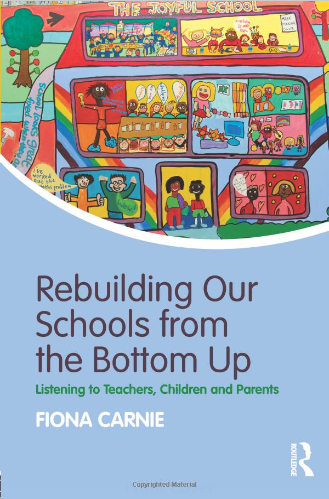Support for Schools to Promote Parent/Teacher Voice
Set up a Parent Council
Research has shown that parental engagement is one of the most powerful school improvement levers that exists. One way of facilitating parent/staff collaboration is to set up a Parent Council, so that parents can contribute to school decision-making.
A briefing on parents’ rights published by the Campaign for State Education (2016) states that “every school should have parent governors democratically elected by parents, but it is important that they have a constituency to relate to, and this is best done by establishing Parent Councils with representation from each year” (Alternative Approaches to Education, by Fiona Carnie).
A Parent Council can run as follows:
- Parent nominated from each class or tutor group.
- A group of 10-15 parents.
- Regular meetings to raise and discuss issues of concern
e.g. homework, class sizes, staffing, behaviour policy, uniform, curriculum. - Views and decisions to be fed back to school
governing body. - Views and decisions to be taken into account in
school decision-making.
It is also recommended that each class has regular class parents’ meetings with the teacher to discuss issues affecting the class.

Equally, it is valuable for parents councils to have a link to student councils so that parents and students can work together and support each other (Rebuilding Schools from the Bottom Up, by Fiona Carnie).
Carnie also recommends that parents are represented in decision-making at local and national levels. Each local authority and multi-academy trust should have a parent forum with representatives from different schools and parent groups, so that parents can be consulted about issues which affect them and their children. Carnie says:
“A National Parents’ Council consisting of representatives from different areas could represent parents’ views to the Government and ensure that parents are consulted on education policy and other legislation affecting children and young people.
There needs to be a channel through which the Government can hear parents’ concerns about education. Parents are major stakeholders in the education system, and so, since we live in a democracy, they should have a voice at all levels.”
Educationalist and author, Fiona Carnie
Set Up a Teacher Council
Studies from the US have found that when teachers are involved in school decisions, and collaborate with school leaders and with each other, the school climate improves. This promotes a better learning environment for students, which raises student achievement, and a better working environment for teachers, which reduces teacher turnover (Rebuilding Schools from the Bottom Up, by Fiona Carnie).
For example, according to researcher, Richard Ingersoll, data from the Schools and Staffing Survey administered by the US Department of Education’s National Centre for Education Statistics shows that as teacher control over ‘social decisions’ (such as student discipline and teacher professional development policies) increases, the amount of conflict between students and staff, amongst teachers, and between teachers and the principal decrease.
One way of giving teachers a voice is to set up a Teacher Council. The purpose is to discuss general issues and recommend changes or improvements to school policies. Issues that are under discussion by the governing body and school leadership could be brought to the staff council meetings to ensure staff views feed into the decision-making process. Similarly, issues and concerns raised by staff could be reported to the governing body.
Teachers must have a voice at national level too. Carnie says:
“At national level, policy makers have everything to gain from hearing from those on the ground and reflecting what they hear in education decision-making. Teachers are at the heart of our school system and are thus key stakeholders to be consulted in the development of policies which they play such an integral part in delivering.”

